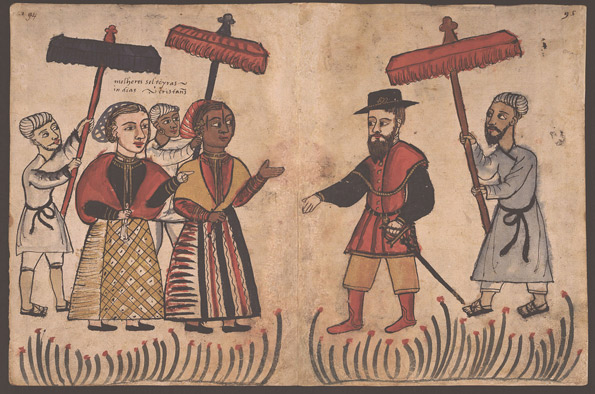
Conceptualising Iberian Asia
- Harald Braun
- Admission: Free
- Event website
- Book now
Add this event to my calendar
Click on "Create a calendar file" and your browser will download a .ics file for this event.
Microsoft Outlook: Download the file, double-click it to open it in Outlook, then click on "Save & Close" to save it to your calendar. If that doesn't work go into Outlook, click on the File tab, then on Open & Export, then Open Calendar. Select your .ics file then click on "Save & Close".
Google Calendar: download the file, then go into your calendar. On the left where it says "Other calendars" click on the arrow icon and then click on Import calendar. Click on Browse and select the .ics file, then click on Import.
Apple Calendar: The file may open automatically with an option to save it to your calendar. If not, download the file, then you can either drag it to Calendar or import the file by going to File >Import > Import and choosing the .ics file.
How can historians make sense of the scattered presence of Iberians in early modern Asia, which differs so much from Spanish America and the Portuguese Atlantic? What can historians gain from deploying a concept embracing communities and individuals from Malindi in East Africa to Tidore in the Maluku Islands and possibly to Acapulco in Mexico? What are its limits? The seminar aims to share some preliminary reflections for a working definition of Iberian Asia. It will propose alternative working chronologies, including those signposted by the global silver trade. Students and colleagues interested in the challenges of conceptualizing and writing global history and themes such as the production of ethnographic knowledge or the conflicting agendas of different European groups in early modern Asia are warmly invited to attend.
Speakers
Harald E. Braun is Reader in European History at the University of Liverpool. His research connects the history and historiography of political thought, Iberian empires, and transgressive violence in early modernity. His most recent publications include a Companion to the Spanish Scholastics (2022). He is the co-editor, with Pedro Cardim, of the series Early Modern Iberian History in Global Contexts published by Routledge (https://www.routledge.com/Early-Modern-Iberian-History-in-Global-Contexts/book-series/EMIHIGC).
Matteo Salonia holds a PhD in History from the University of Liverpool. Currently he is Assistant Professor in European and International History at the University of Nottingham Ningbo (China) and 2024 Distinguished Visiting Scholar at Benedictine College (US). He has published the monograph Genoa’s Freedom: Entrepreneurship, Republicanism and the Spanish Atlantic (2017) as well as an edited volume titled Travel Writings on Asia (2022). His research interests include medieval constitutionalism, the age of Iberian exploration, and the history of global Catholicism.
